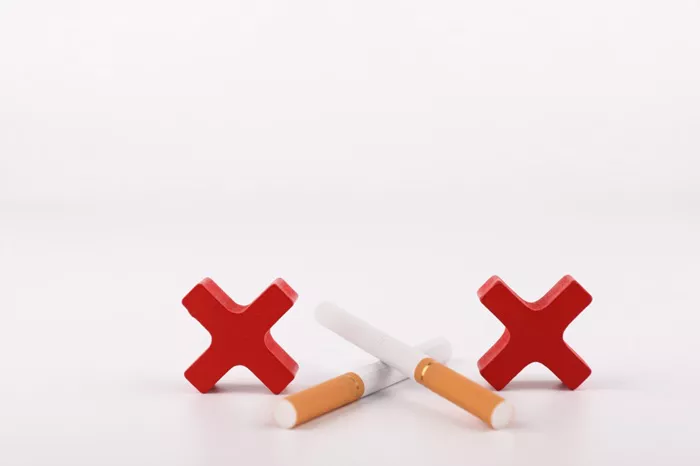Hair transplantation is a delicate surgical procedure that requires meticulous aftercare to ensure optimal results. Among the many post-operative restrictions, smoking is strictly prohibited due to its detrimental effects on healing and graft survival. This article explores the scientific and medical reasons behind this prohibition, detailing how smoking compromises blood circulation, delays recovery, and increases the risk of complications.
The Impact of Smoking on Blood Circulation
Nicotine and Vasoconstriction
Nicotine, a primary component of cigarettes, causes vasoconstriction—the narrowing of blood vessels. This reduces blood flow to the scalp, depriving newly transplanted hair follicles of essential oxygen and nutrients. Since grafts rely on a robust blood supply to establish themselves, restricted circulation can lead to poor graft survival and thinning hair.
Carbon Monoxide and Oxygen Deprivation
Smoking introduces carbon monoxide into the bloodstream, which binds to hemoglobin more effectively than oxygen. This results in hypoxia, a condition where tissues receive insufficient oxygen. In the context of hair transplantation, hypoxia weakens follicular strength, increasing the likelihood of graft failure.
Delayed Wound Healing and Increased Infection Risk
Impaired Tissue Regeneration
The chemicals in cigarettes interfere with collagen production, a critical component of wound healing. Since hair transplantation involves creating micro-incisions in the scalp, impaired collagen synthesis slows down tissue repair, prolonging recovery time.
Higher Susceptibility to Infections
Smoking weakens the immune system, making patients more vulnerable to bacterial and fungal infections. Post-operative infections can damage grafts and lead to scarring, negatively affecting the aesthetic outcome of the procedure.
Increased Risk of Follicle Necrosis
Reduced Nutrient Delivery to Grafts
Healthy hair follicles require a steady supply of nutrients to thrive. Smoking disrupts microcirculation, limiting the delivery of vital proteins and growth factors to the transplanted area. This nutrient deficiency can cause follicular necrosis, where grafts die before fully integrating.
Toxins and Free Radical Damage
Cigarette smoke contains harmful toxins and free radicals that induce oxidative stress. These compounds damage cellular structures, including hair follicle cells, accelerating their deterioration. Over time, this can lead to poor hair density and an unnatural appearance.
Psychological and Long-Term Effects
Stress and Delayed Recovery
Nicotine withdrawal post-surgery can induce stress, which further hampers healing. Elevated cortisol levels slow tissue regeneration and may trigger telogen effluvium, a condition causing excessive hair shedding.
Long-Term Hair Health Compromises
Even after the initial recovery phase, continued smoking can negatively impact hair health. Chronic smokers often experience premature hair thinning and reduced hair quality due to persistent vascular and metabolic damage.
Alternative Solutions for Smokers
Nicotine Replacement Therapy (NRT)
Patients struggling with nicotine dependence may consider NRT options such as patches or gum, which do not involve inhaling harmful smoke. However, consulting a surgeon before use is crucial, as nicotine in any form can still affect healing.
Temporary Abstinence Before and After Surgery
To maximize transplant success, patients are advised to quit smoking at least two weeks before the procedure and refrain for several weeks post-operation. This allows the body to restore normal blood flow and improve graft survival rates.
Additional Considerations for Optimal Hair Transplant Results
Beyond avoiding smoking, patients must follow a comprehensive aftercare regimen to ensure the success of their hair transplant. Proper scalp hygiene, a balanced diet rich in vitamins and proteins, and adherence to prescribed medications all contribute to faster healing and stronger hair growth.
The Role of Hydration and Nutrition
Adequate hydration is essential for maintaining scalp health and promoting circulation. Dehydration can lead to dryness and flaking, which may irritate the transplanted area. Additionally, consuming foods high in antioxidants, such as berries and leafy greens, helps combat oxidative stress and supports follicle regeneration.
Avoiding Physical Strain and Sun Exposure
Strenuous activities should be avoided in the first few weeks post-surgery, as excessive sweating and increased blood pressure can dislodge grafts. Similarly, direct sun exposure can cause inflammation and hyperpigmentation, so wearing a hat or using a physician-approved sunscreen is recommended.
The Importance of Follow-Up Appointments
Regular check-ups with the surgeon allow for early detection of potential complications, such as infections or poor graft adherence. Professional guidance ensures that any issues are addressed promptly, maximizing the chances of a successful outcome.
By combining smoking cessation with these best practices, patients can significantly improve their hair transplant results and enjoy long-lasting, natural-looking hair restoration.
The Psychological Benefits of Post-Operative Compliance
Adhering to post-transplant guidelines, including smoking cessation, provides patients with a sense of control and active participation in their recovery journey. This psychological benefit should not be underestimated, as patient mindset plays a crucial role in healing outcomes. Studies show that individuals who strictly follow postoperative instructions experience less anxiety about their results and report higher satisfaction rates. The discipline required to avoid smoking and maintain proper aftercare often translates to better long-term hair maintenance habits as well. Ultimately, viewing these restrictions as an investment in one’s appearance and self-confidence makes the temporary sacrifices worthwhile for permanent aesthetic improvements.
Conclusion
Smoking after a hair transplant poses significant risks, including poor blood circulation, delayed healing, graft failure, and infections. The harmful effects of nicotine, carbon monoxide, and toxins create an unfavorable environment for newly transplanted follicles. Patients committed to achieving the best results should adhere to strict no-smoking protocols before and after surgery. By prioritizing post-operative care, individuals can enhance graft survival and enjoy a fuller, healthier head of hair.
Related Topics:

